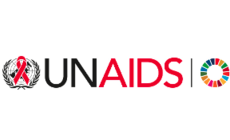Institution Background
UNAIDS, the Joint United Nations’s Programme on HIV/AIDS, is leading the global effort to end AIDS as a public health threat by 2030 as part of the Sustainable Development Goals. Since it started operations in 1996, UNAIDS has led and inspired global, regional, national and local leadership, innovation and partnership to ultimately consign HIV to history.
UNAIDS provides the strategic direction, advocacy, coordination and technical support needed to catalyse and connect leadership from governments, the private sector and communities to deliver life-saving HIV services. UNAIDS generates strategic information and analysis that increases the understanding of the state of the AIDS epidemic and progress made at the local, national, regional and global levels.
UNAIDS works with a range of partners to maximize synergies and global investments in the AIDS response. The long-standing collaboration between UNAIDS, PEPFAR and the Global Fund to Fight AIDS, Tuberculosis and Malaria (Global Fund) helps ensure the goals of saving lives, achieving epidemic control, enhancing health security and increasing global burden-sharing.
UNAIDS is a model for United Nations reform and is the only cosponsored Joint Programme in the United Nations system. It draws on the experience and expertise of 11 United Nations system Cosponsors and is the only United Nations entity with civil society represented on its governing body – Programme Coordinating Board (PCB). The UNAIDS Secretariat has offices in 70 countries, with 70% of its staff based in the field.
Evaluation Function
To strengthen accountability, transparency, organizational learning and change, the UNAIDS evaluation function has been strengthened in 2019 through the establishment of an independent Evaluation Office as a structurally and functionally separate unit of the UNAIDS Secretariat reporting to the Programme Coordinating Board. Based on the range recommended by the United Nations Joint Inspection Unit (JIU/REP/2014/6), the UNAIDS PCB has established that 1% of UNAIDS’ annual expenditure is to be allocated to the evaluation function.
Every two years, an evaluation plan is developed through a consultative process involving the Cosponsors, the Secretariat and an expert advisory committee on evaluation before being presented to the PCB for approval. The scope of the evaluations carried out by the UNAIDS Evaluation Office includes the HIV-related activities of all 11 Cosponsors and the UNAIDS Secretariat, which are carried out together with the evaluation offices of the Cosponsors, as well as UNAIDS Secretariat-specific evaluations.

